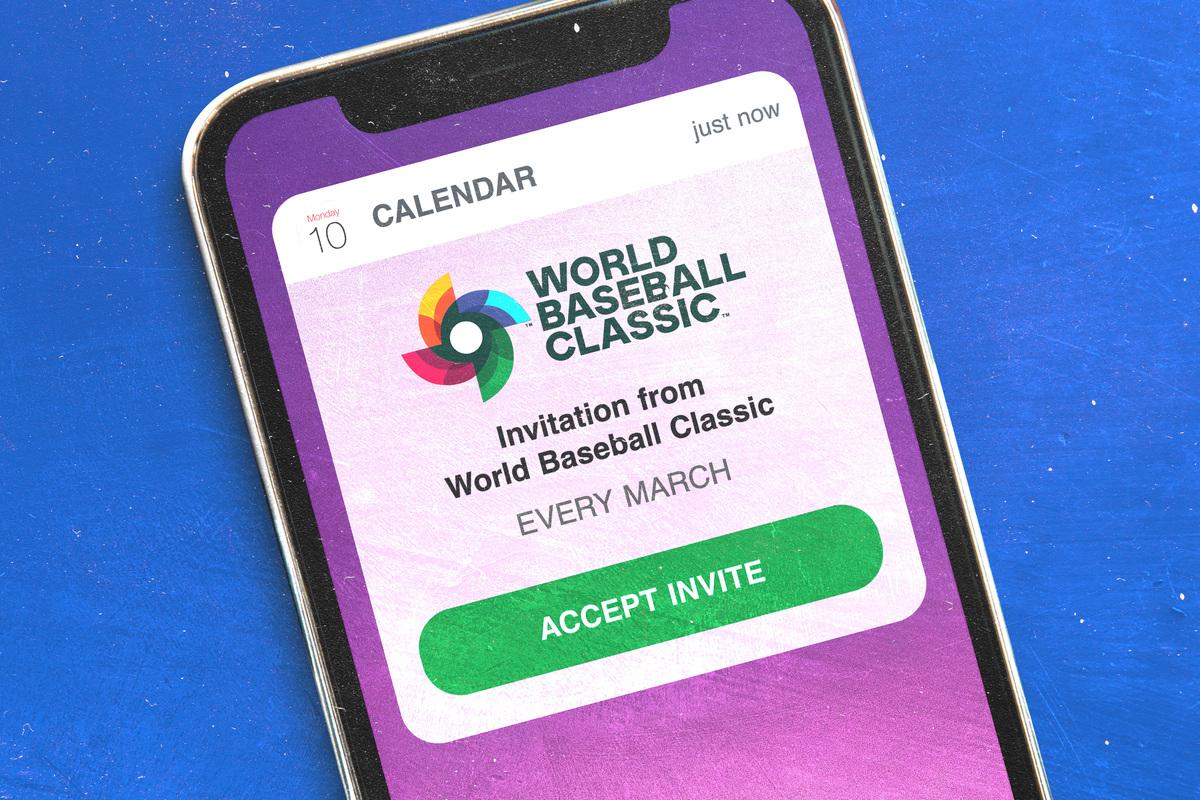
The leadup to MLB Opening Day is traditionally a time to dream about things being better than before. Last season’s slate is wiped clean, and for even the worst teams, the future is still unspoiled. The loss column is empty, mathematical elimination is many months away, and even the most pessimistic playoff probabilities hover above 0.0. So it’s bittersweet to break it to baseball fans: Folks, it’s all downhill from here.
The World Baseball Classic that concluded on Tuesday night can’t be topped by mere Major League Baseball. This was a joyous, two-week whirlwind of a tournament that fully lived up to its name, from the global participation to the all-time-great games. We saw Secret Wars–style superstar teamups and matchups that couldn’t take place beyond WBC Battleworld. We drank in a rainbow of body types, pitch speeds, and batting stances. We savored an environment so raucous and intense that even buttoned-up baseballers who don’t normally play loud amped themselves up to match the emotions of their foes and fans. And all of the thrilling throat-clearing culminated in what almost seemed like scripted rising action, which ushered us from an incredible quarterfinal between Team USA and Venezuela, to an exquisite semifinal between Mexico and Japan, to a tight USA-Japan final—maybe the most-watched baseball game ever. The appointment viewing climaxed, improbably and perfectly, with a special-effects confrontation from the closing minutes of a Phase 3 Marvel movie: Shohei Ohtani pumping triple-digit heat and a scale-breaking sweeper past sometime-teammate Mike Trout in a pulse-pounding passing of the GOAT torch.
Baseball can’t possibly baseball better than that. We have seen sports nirvana, and all it took to top the preceding several millennia of athletic competition was a 20-team global baseball tournament played in mid-March. And the best part is: They’ll do it all over again next year.
Right?
OK, this can’t be right. Our fact-checkers are trying to tell me that there won’t be a WBC in 2024. Wait, why wouldn’t the sport’s powers that be want to bring back baseball’s best showcase next year? Really? They’re sure about that? Oof. That’s a body blow. Well, all right. I guess I can tough it out until 2025.
What? Hold on. No way. The next one isn’t until 2026? You mean I’m supposed to spend the next two Marches trying to care about the Cactus and Grapefruit leagues while counting down to Opening Day? And, because the MLB regular season lasts six months and 12 teams make the playoffs, I’ll have to wait until October in each of the next two years to watch major leaguers in games that truly make me sweat?
This sucks, but it seems like an accident. Someone must have forgotten to put a deposit down, or slept through their alarm on the day of the deadline for scheduling the next tournament or two. After 2026, at least, the appropriate paperwork will be filed, the interminable waits between WBCs will be over, and spring training won’t be boring any—oh, come on. Now I’m told that after 2026, the tournament will go away again until 2029. So they’re making more Avatar movies than World Baseball Classics between now and the end of the decade? And after 2029, baseball’s plan is to play every four years?
No. This sporadic WBC schedule cannot stand. How dare the WBC detractors deprive us of the sweet sports nectar that transforms a boring baseball month into one whose stakes, stories, and adrenaline-inducing delights equal or surpass the “playoff atmosphere” that won’t take effect until fall. “I would do this every year,” Mookie Betts said before the U.S. semifinal. Well, I would watch this every year. Give me more WBC!
Granted, the WBC has been, by design, a triennial or quadrennial event since the start. Three years elapsed between the first and second WBCs (in 2006 and 2009, respectively), and “every four years” has been the blueprint ever since, though the pandemic put a crimp in the WBC supply chain. The 2021 WBC was delayed until 2023, and 2025—which would have been a WBC year had the tournament stayed on schedule—was deemed too soon to play again. Hence the postponement to 2026, followed by a return to the original cadence in 2029, 2033, and beyond.
It’s time to tear up the blueprint and loosen the tap. This tournament is too riveting not to make it a staple of spring. No, not every WBC can be quite as classic as this year’s, but it’s not as if it hasn’t been fun before. Plus, even a mundane WBC would make March more memorable than the usual somnolent montage of split-squad games, PFPs, platitudes about being aggressive on the bases, and blurry beat writer photos.
When the WBC started, its on-again, off-again, off-again structure made sense. For one thing, no one knew if it would work or if anyone would watch. For another, baseball’s international-competition calendar was more crowded back then. When the WBC debuted, it coexisted with the Baseball World Cup (which was often annual or biennial) and the Summer Olympics. But the Baseball World Cup was discontinued in 2011, and baseball was dropped from the Summer Olympics after 2008 (though it’s sometimes restored for Games hosted by baseball-loving countries, as it was in Tokyo for the 2020 Olympics and as it likely will be in L.A. in 2028). Thus, the WBC no longer needs to steer clear of a major competing event, as, say, the FIBA Basketball World Cup does where the Olympics are concerned.
Now that the WBC is both a worldwide success and the only baseball event of its kind, it’s time to stop pumping the brakes. There’s no great reason to stage the WBC only once per presidential term, given that the WBC has little in common with the other major events that employ the quadrennial model. Unlike, say, the Summer Olympics and the World Cup, the WBC isn’t tied to long traditions of taking place every four years—traditions that date back to times when travel wasn’t so speedy. And whereas the Summer Olympics alternates with the Winter Olympics and the FIFA World Cup alternates with continental tournaments—including the Copa América and the European Championship—the WBC doesn’t have a close equivalent. (Though it’s still squeezed by the schedules of participating countries’ domestic major leagues, as well as the regional Caribbean Series.)
But the biggest difference between the WBC and the Olympics or World Cup is that the WBC is orders of magnitude less complex and expensive to stage. It has far fewer participants than those other events, its compressed qualifiers don’t take years to determine tournament eligibility, and it doesn’t last as long as the World Cup. Better yet, no infrastructure needs to be financed, no stadia or “WBC village” needs to be built, and no elaborate opening ceremonies need to be planned. Logistically speaking, it’s a cinch compared to those titans of international sports—a smaller-scale operation played at existing facilities in three host countries, none of which pays a prohibitive bill. There doesn’t seem to be any structural reason that the WBC couldn’t recur at a faster tempo.
So, what prevents the WBC from picking up its pace, other than inertia? The timing of the tournament is collectively bargained, but the players are—increasingly loudly—pro-WBC, and MLB (which spearheaded the tournament’s creation) is enamored of its potential to help the game grow. The primary impediments are team owners, who’ve historically resisted ceding control of the players they’ve invested in. When clubs have the power to block players’ participation, they often exercise it, and when they can’t prevent players from departing, they may still grumble about their absences. Teams worry that the WBC will impair players’ training routines and leave them more vulnerable to injury, and they may also fear the effects of those absences on clubhouse bonding and spring training ticket sales.
As Edwin Díaz and Jose Altuve can confirm, injuries occur at the WBC, but according to MLB, “there is no correlation between being hurt and playing in the WBC.” The league has incentive to downplay any injury risk (and hasn’t shown its work), but convincing public evidence that the tournament is more dangerous than spring training is also scarce. Just for the sake of discussion, let’s say there is some small extra risk associated with suiting up for a WBC squad. Should that be a dealbreaker, given how much excitement the event generates among participants and spectators? And if that theoretical risk is worth tolerating every three or four years, why not every one or two? Is the MLB regular season so sacred and supreme that no amount of pride, joy, and global goodwill generated by the WBC can offset the damage done by a broken thumb or torn patellar tendon?
With insurance, clubs can recoup the cost of salary for players who get hurt during the WBC, and because the owners split the profits from the tournament with the MLBPA, the tournament’s rising revenue may make it more palatable to teams. Regardless of clubs’ wishes, one could argue that the WBC’s rarity makes it more exciting—that part of the appeal of this year’s event was the long layoff since the 2017 tournament coupled with the knowledge that the WBC wouldn’t be back until 2026. I would counter, though, that the gaps between WBCs make it harder to sustain the tournament’s momentum at a time like this. By the time the tournament rolls around again, memories of highlights will have faded, and some players from this year’s squads will have retired or aged off of rosters. Plus, the WBC’s sporadic schedule makes it seem more intrusive and disruptive to the normal spring training routine than it would if it were annual or biennial, which likely leads to more pushback from fans and teams.
This time around, players did their best to push back the pushback. Yes, many prominent players—particularly pitchers—were no-shows, and absent aces and usage restrictions sapped some sense of urgency from Team USA’s title defense. But the players who were present spewed superlatives about how meaningful they found the WBC, raving about the best atmosphere, the best time, the greatest games, and the biggest hits and catches. “I believe this is the best moment in my life,” Ohtani said, after saving Japan’s win and being anointed tournament MVP. (Ohtani threw multiple pitches for Samurai Japan that were faster than any he’s thrown for the Angels.) Trout, on the losing side of the final, said, “This was probably the funnest 10 days I’ve ever had”—and while the Angels may not be the most fun team to play for, Trout has celebrated a Super Bowl win and marveled at countless snow storms. “I can’t believe anybody would rather stay in spring training than play in a game like that,” J.T. Realmuto said after Team USA’s quarterfinal victory. Would anybody rather have watched him stay in spring training than play in a game like that?
One of the wonderful things about the WBC, which the players picked up on, is that it delivers the adrenaline rush of MLB’s wild-card round without the justified hand-wringing that accompanies playoff upsets. No, the WBC’s format doesn’t definitively settle the question of which team is best (though the champions have all been baseball powerhouses). But it does offer all the fan-friendly upsides of a short series or single-elimination game without the downside of rendering the regular season almost moot. Given the fairly low opportunity cost of siphoning some players from forgettable games in Florida and Arizona, I don’t think there can be too much of this good thing.
If the WBC were annual or (OK, we can compromise) biennial, we would have more chances to see Ohtani and other superstars—especially superstars whose teams don’t give them many opportunities to celebrate—excel on this stage and, perhaps, provide more fodder for real rivalries among WBC teams. (As it is, Trout won’t get a second crack at a WBC championship until he’s almost 35.) We would have more (much-needed) reminders that MLB is just the tip of a global baseball iceberg, and we would get to admire more stars of other leagues who haven’t played (and might never play) in MLB. More unsung players would get inked by big league teams; more pitcher-electricians would have stories to tell their grandkids; and more countries with smaller player pools might be able to build them up. More trash would be talked, more inspiring speeches would be made, more memes and GIFs would be born, and more baseballs would be signed mid-game.
“Japan advances, but the baseball world won,” said Mexico manager Benji Gil after his team’s semifinal loss. USA manager Mark DeRosa echoed him a day later: “The fans won tonight.” Not everyone won at the WBC, but the teams that lost would love a chance to try again before 2026. Baseball’s losers’ slogan says, “Wait ’til next year,” but the sport’s signature international tournament asks its winners and losers alike to wait three or four years. Baseball has a good thing going. It would be even better if it got going again soon.

